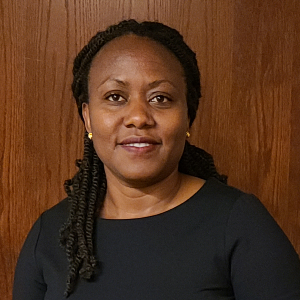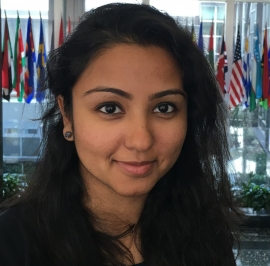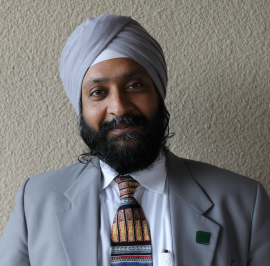About the Climate-Smart Health Systems Collaborative
While countries are taking steps to develop climate smart-health systems (CSHS), they still need more practical knowledge and resources to establish and maintain these systems. Governments across many countries have expressed the challenge of accessing practical, implementation-related knowledge on climate change in the health sector. The CSHS collaborative promotes peer-to-peer learning among JLN member countries and selected non-JLN countries to address this challenge. It helps strengthen governments’ capacity by enabling policymakers to learn from each other through the sharing of lessons and innovations, solving common problems, and co-producing knowledge on building climate-smart health systems. With facilitation by experienced resource experts, practitioners, and domain experts, the Collaborative brings together mid- to senior-level government practitioners from 21 countries. The goal is to support access to knowledge, cross-country learning, and capacity building on climate change adaptation, resilience, and mitigation in the health sector, as an integral part of country efforts to achieve Universal Health Coverage (UHC).
Why Building Climate Smart Health Systems is Important for advancing UHC
Climate change poses a serious threat to human health, and its effects will only worsen as the global crisis escalates. Extreme temperatures and weather events Moreover, climate change disrupts food and water access, alters infectious disease patterns, undermines maternal and child health and countless other health .[1] Climate change also exacerbates health risks linked to poor, air quality, and . Also, climate-related extreme events particularly heavy rainfall, floods, landslides, strong winds and extreme heat threaten healthcare delivery, disrupt access to health facilities, interrupt supply chains and cause direct damage to health facilities and other physical infrastructure. By 2050, according to World Bank modeling, climate change could cause an estimated 21 million additional deaths from just five health risks, further straining healthcare systems. These risks disproportionately burden vulnerable populations, hindering progress towards Universal Health Coverage. Building climate-smart health systems is crucial for mitigating these impacts and safeguarding human health amidst the changing climate.
[1] World Bank, https://www.worldbank.org/en/topic/health/brief/health-and-climate-change
Co-Developed Resources and Shared Learnings:
The Collaborative anticipates that its outputs will include knowledge exchanges and webinars, co-created knowledge products, and a vibrant community of practitioners. For 2024–2025, the knowledge products prioritized for co-production will focus on governance, financing, and data and accountability. Under governance, members will prepare a how-to guide for implementing climate and health governance across multiple levels and within appropriate institutional structures. For financing, members expressed interest in knowledge products on making the case for investment in climate and health, as well as a repository of costing, budgeting, and Public Financial Management (PFM). Regarding data and accountability, members indicated interest in co-developing a toolkit to help analyse multiple data sources from various sectors and enable policy actions based on this integrated data. They requested an expressed interest in a repository of guides to support climate-smart health facilities.
Participating Countries
Bahrain, Belize, Bhutan, Colombia, Egypt, Ethiopia, Fiji, India, Indonesia, Lao PDR, Malaysia, Mongolia, Morocco, Nigeria, Papua New Guinea, Peru, Saint Lucia, Sao Tome and Principe, Senegal, the United Arab Emirates, Vietnam
Partners
Australia DFAT, USAID, Bill and Melinda Gates Foundation, partners of the Health Climate, Environment and Disaster Program (HCED) at the World Bank Group beyond the JLN, The Health Systems Strengthening Accelerator with Results for Development, the Government of Japan.
Event Announcement - 2nd In-Person Meeting of the CSHSC
The Second In-Person Meeting of the CSHS Collaborative
October 5-9, Manama, Bahrain
The JLN Collaborative on Climate Smart Health Systems will hold its second full-collaborative in-person meeting in Manama, Bahrain, from October 5-9, 2025. At the Second In-Person meeting, members will provide feedback and finalize the knowledge products that have been developed over the previous year (under the three workstreams of Governance, Financing, and Data and Accountability) and identify products for co-production in Year 2 of the collaborative, under the remaining three workstreams of Multisectoral Action, Engaging Communities, and Service Delivery Models.
The Governance workstream has developed a Climate and Health Governance Guideline that covers policies, regulations, leadership, and stakeholder coordination. The Financing workstream has drafted two knowledge products: Making the Case for Investment in Climate and Health, which outlines key messages on health impacts and investment benefits, and a Repository on Public Financial Management for Climate and Health that compiles resources for climate-smart health financing. The Data and Accountability workstream has drafted a Data Toolkit on common data integration and visualization challenges, as well as two repositories, with the first focusing on Health Facility Infrastructure and the second focusing on Health Worker Tools.
By fostering collaboration and knowledge exchange among policymakers, the CSHS Collaborative aims to strengthen governments’ capacity to build climate-smart health systems and address the challenges posed by climate change. Members of the collaborative have previously convened at the Launch meeting of the collaborative in February 2024 (Washington, DC, USA) and at the First Author’s Workshop in October 2024 (New Delhi, India).
The inaugural in-person meeting was attended by 20 countries from Africa, Asia, the Middle East, and South America. The primary goals of the initial in-person meeting of the JLN CSHS Collaborative were to initiate the collaborative, identify priority technical areas and key themes, share existing efforts, tools, and successes, understand and document expectations for collaborative activities, and jointly outline potential knowledge products that could be co-produced throughout the two-year collaborative period. The meeting facilitated the sharing of experiences and lessons learned regarding climate change response and healthcare system resilience. During the launch meeting, participants identified the six workstreams for focus by the collaborative and agreed to collaboratively co-develop knowledge products in 2024-2025 under the first three workstreams of Governance, Financing and Data and Accountability.
The First Author’s Workshop in New Delhi, India, from October 7-11, 2024 brought together a select group of participants from 21 member countries to share their practical experiences and implementation knowledge. Attendees discussed the key components and country examples for inclusion in the Year 1 knowledge products and shared their interest in co-authoring and contributing content for specific sections in each knowledge product. The workshop concluded with working outlines for the knowledge products for further virtual deliberation.
Facilitators
 Tamer Rabie, Global Program Lead, Climate-Health Program, The World Bank
Tamer Rabie, Global Program Lead, Climate-Health Program, The World Bank
 Stephen Dorey, Senior Health Specialist, The World Bank
Stephen Dorey, Senior Health Specialist, The World Bank
 Zara Shubber, Senior Health Specialist, The World Bank
Zara Shubber, Senior Health Specialist, The World Bank
 Moritz Piatti, Senior Health Economist, The World Bank
Moritz Piatti, Senior Health Economist, The World Bank
 Jessica Flannery, Senior Climate Change and Health Specialist, The World Bank
Jessica Flannery, Senior Climate Change and Health Specialist, The World Bank
 Judith Namanya, Consultant, The World Bank
Judith Namanya, Consultant, The World Bank

Lander Bosch, Health Economist, The World Bank
 Aditi Nigam, Coordinator for the CSHS Collaborative, The World Bank
Aditi Nigam, Coordinator for the CSHS Collaborative, The World Bank
 Tanvi Gupta, Consultant, The World Bank
Tanvi Gupta, Consultant, The World Bank

Mahlet Gizaw, JLN Health Specialist, World Bank
 Somil Nagpal
Somil Nagpal
Lead Health Specialist, World Bank
